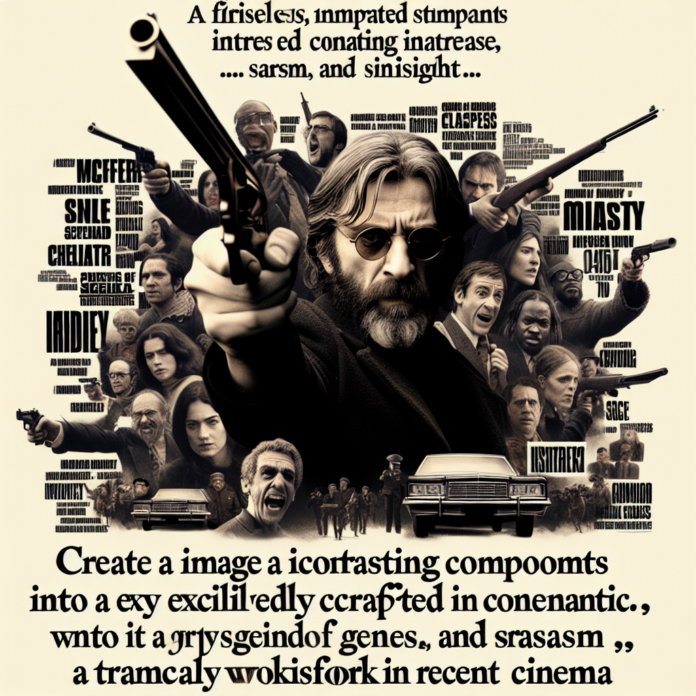Bong Joon-ho’s 2019 movie “Parasite” is an unparalleled feast for the senses and mind, seamlessly melding an array of various components right into a cohesive, masterfully crafted narrative. This cinematic tour de power tangles viewers in an internet of fascination, discomfort, irony, and revelation from the very starting, refusing to let go till its stunning denouement. It’s a movie that doesn’t merely blur the strains between genres; it shatters them solely, rising as a transformative piece of up to date cinema with a deep-seated commentary on social disparity and sophistication stratification.
The movie begins with the Kim household, dwelling in a semi-basement house, struggling to make ends meet. When the son, Ki-woo (Choi Woo-shik), will get a chance to tutor a rich household’s daughter, the narrative shifts into excessive gear, mixing darkish comedy with incisive social critique. The rich Park household stands in stark distinction to the Kims; their extravagant, sprawling home epitomizes opulence and privilege. As Ki-woo’s sister, Ki-jung (Park So-dam), secures a place as an artwork tutor for the Parks beneath false pretenses, the Kims systematically infiltrate the family by displacing the unique workers. What begins as a intelligent heist movie step by step morphs right into a suspenseful thriller and in the end, a heart-wrenching tragedy.
Bong’s genius lies in his potential to make use of these style conventions to serve his broader social commentary. The intricate plot threads are woven along with extraordinary finesse, making every scene dense with that means. The Kims’ basement dwelling is juxtaposed with the Parks’ glass-walled mansion, highlighting the literal and metaphorical gaps between the lives of the wealthy and the poor. This distinction is regularly explored and expanded upon, making the connection between the Kims and the Parks a microcosm of broader societal disparities.
“Parasite” employs extremely articulate visible and dramatic idioms that maintain the viewers each engaged and unsettled. Cinematographer Hong Kyung-pyo works magic, utilizing framing, lighting, and digital camera motion to amplify the narrative’s emotional undertones. The way in which the digital camera captures the architectural labyrinth of the Park residence is especially placing; it feels each inviting and confining, an ironic jail for its inhabitants. This setting typically appears like a personality itself, with labyrinthine hallways and hidden bunkers that maintain darkish secrets and techniques and societal truths.
The performances by the solid are universally stellar, including wealthy texture to the movie. The ensemble, led by the inimitable Tune Kang-ho because the patriarch Kim Ki-taek, imbues the movie with a uncooked, palpable authenticity. Every actor brings depth to their position, guaranteeing that no character is a mere caricature. There is a deeply human factor to the Kims’ con, making it unimaginable to not empathize with their plight at the same time as one is repelled by their deceit.
The screenplay, co-written by Bong Joon-ho and Han Jin-won, is taut and layered with irony. The dialogue is sharp, typically laced with darkish humor that brings levity to the in any other case grim subject material. But, it by no means undermines the movie’s underlying gravitas. As an illustration, the recurring theme of scent — with the Parks typically complaining in regards to the Kims’ scent — serves as a stark reminder of the intangible but omnipresent limitations between the courses.
“Parasite” would not merely current a binary of wealthy versus poor; it explores the nuances and contradictions inside these classes. The Parks, regardless of their wealth, are portrayed as naïve and out of contact with actuality, whereas the Kims, of their wrestle, exhibit resourcefulness and resilience. But, Bong Joon-ho doesn’t sanctify the poor or demonize the wealthy; he presents a extra advanced image the place each households are flawed and human.
Because the narrative careens in direction of its explosive climax, the growing stress unravels the skinny facade of civility that each households keep. The literal and metaphorical floods that happen wash away these facades, revealing the brutal truths buried beneath. The stunning violence of the finale serves as a cathartic launch and a grim reminder of the harmful energy of systemic inequality.
In conclusion, “Parasite” is a cinematic masterpiece that defies categorization and compels its viewers to confront uncomfortable truths. Bong Joon-ho’s route ensures that each factor, from the performances to the set design, contributes to a wealthy, multi-layered narrative. It’s a movie that not solely entertains but additionally provokes thought and dialogue, marking it as each a cultural and creative milestone. “Parasite” will not be merely a movie to be watched; it is a movie to be skilled, understood, and remembered.

